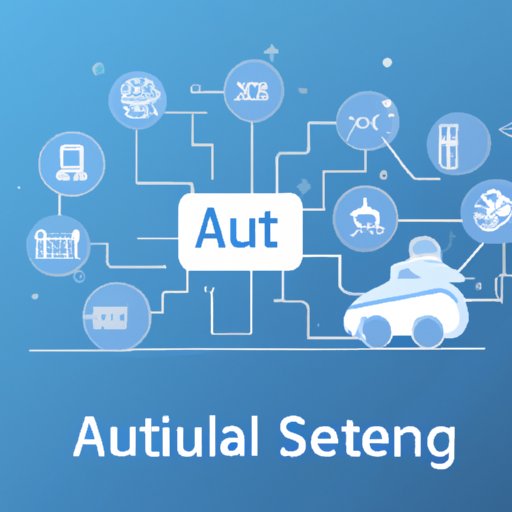Introduction
Artificial intelligence (AI) is a form of computer science that enables machines to learn from data, recognize patterns, and make decisions with minimal human intervention. AI has become increasingly popular in recent years due to its ability to help us automate tedious tasks, streamline healthcare processes and diagnostics, enhance customer service experiences, facilitate the development of self-driving vehicles, improve the accuracy of predictive analytics, reduce the need for manual labor in manufacturing, and increase the efficiency of energy production systems.
Automating Menial Tasks
One of the major benefits of AI is its ability to automate menial tasks. AI can be used to automate mundane tasks such as sorting emails, scheduling meetings, and transcribing audio recordings. This frees up time for more important tasks, allowing employees to focus on higher-value activities and boosting productivity. According to a survey conducted by Oracle, 90% of executives believe that AI will allow their employees to focus on more meaningful work.

Streamlining Healthcare Processes and Diagnostics
AI is also being used to streamline healthcare processes and diagnostics. AI-driven technologies such as natural language processing, machine learning, and computer vision are being used to analyze medical data and help doctors diagnose diseases more accurately and efficiently. For example, AI has been used to detect early signs of cancer in medical images with greater accuracy than humans. According to a study published in Nature Medicine, AI was able to detect breast cancer in mammograms with an accuracy of 89%.
Enhancing Customer Service Experiences
AI is also helping to enhance customer service experiences. AI-driven chatbots are being used to provide customers with 24/7 support, allowing them to get answers to their questions quickly and conveniently. According to a survey conducted by Oracle, 81% of customers said that they were satisfied with their experience when interacting with AI-powered chatbots.
Facilitating the Development of Self-Driving Vehicles
AI is also being used to facilitate the development of self-driving vehicles. Autonomous driving technology is being developed using AI-driven algorithms to enable cars to navigate roads and avoid obstacles without human intervention. This technology has the potential to make roads safer for everyone, as self-driving vehicles are less prone to human error. According to a study conducted by the University of Michigan Transportation Research Institute, autonomous vehicles could reduce the number of traffic fatalities by up to 90%.

Improving the Accuracy of Predictive Analytics
AI is also being used to improve the accuracy of predictive analytics. AI-driven algorithms are being used to optimize predictions, allowing organizations to make better decisions faster. According to a study conducted by McKinsey Global Institute, AI-driven predictive analytics can increase the accuracy of predictions by up to 50%.

Reducing the Need for Manual Labor in Manufacturing
AI is also helping to reduce the need for manual labor in manufacturing. Automation technologies such as robots and robotic arms are being used to automate repetitive tasks and improve production times. According to a study conducted by the Boston Consulting Group, the use of automation in manufacturing could lead to cost savings of up to 20%.
Increasing the Efficiency of Energy Production Systems
Finally, AI is being used to increase the efficiency of energy production systems. AI-driven energy management systems are being used to optimize energy consumption, leading to lower costs and reduced emissions. According to a study conducted by the International Renewable Energy Agency, the use of AI in energy management systems could lead to a reduction in global energy demand of up to 10%.
Conclusion
AI has the potential to revolutionize the way we live and work. From automating menial tasks to improving the accuracy of predictive analytics, AI is helping us in many ways. It is also facilitating the development of self-driving vehicles, reducing the need for manual labor in manufacturing, and increasing the efficiency of energy production systems. As AI continues to evolve, it is sure to bring even more innovative solutions to our everyday lives.
(Note: Is this article not meeting your expectations? Do you have knowledge or insights to share? Unlock new opportunities and expand your reach by joining our authors team. Click Registration to join us and share your expertise with our readers.)
